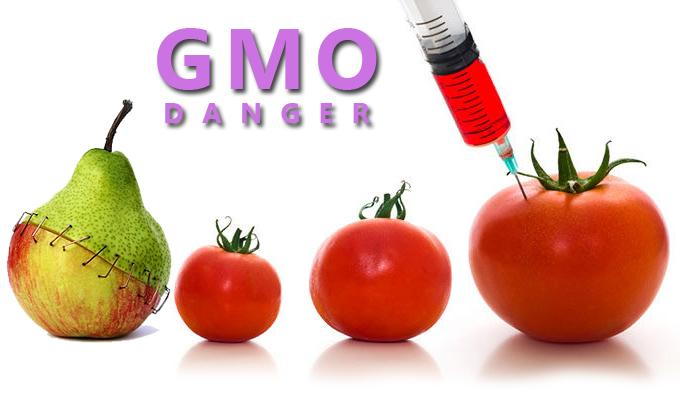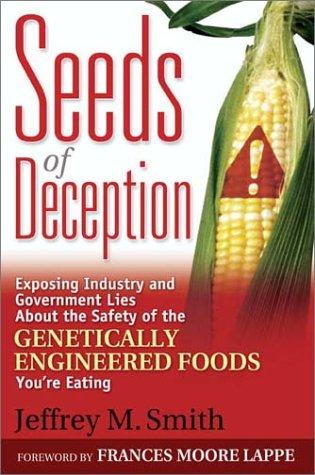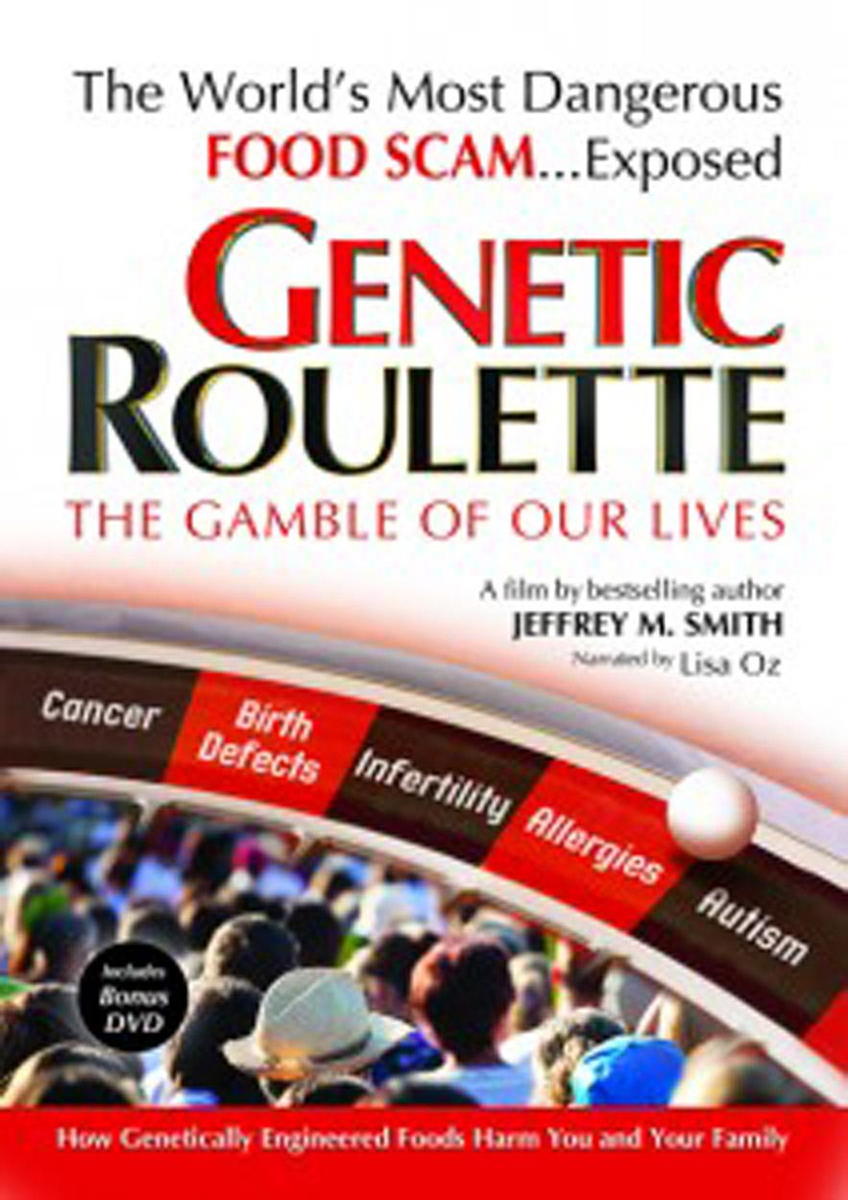- posted: Jan. 17, 2017

GMO Effect on Health:
We have been exposed to GMO food options since they first hit grocery stores in 1994 in the form of a tomato with an extended shelf life. While there is much controversy surrounding the subject of GMOs, there are some truths that can't be ignored. We found the following findings on www.naturalrevolution.org.- Soy allergies skyrocketed by 50% in the UK, soon after GM soy was introduced.
- Cooked GM soy contains as much as 7-times the amount of a known soy allergen.
- GM soy also contains a new unexpected allergen, not found in wild natural soy.
- GM soy drastically reduces digestive enzymes in mice.
- Mice fed experimental GM peas also started reacting to a range of other foods. (The peas had already passed all the allergy tests normally done before a GMO gets on the market. Only this advanced test, which is never used on the GMOs we eat, revealed that the peas could actually be deadly.)
- Rats fed GM potatoes had smaller, partially atrophied livers.
- The livers of rats fed GM canola were 12-16% heavier.
- GM soy altered mouse liver cells in ways that suggest a toxic insult. The changes reversed after they switched to non-GM soy.
- More than half the babies of mother rats fed GM soy died within three weeks.
- Male rats and mice fed GM soy had changed testicles, including altered young sperm cells in the mice.
- The longer mice were fed GM corn, the less babies they had, and the smaller their babies were.
- Babies of female rats fed GM soy were considerably smaller, and more than half died within three weeks (compared to 10% of the non-GM soy controls).
- Female rats fed GM soy showed changes in their ovaries and uterus.
- By the third generation, most hamsters fed GM soy were unable to have babies.
- Thousands of sheep, buffalo, and goats in India died after grazing on GM cotton plants after harvest. Others suffered poor health and reproductive problems.
- Farmers in Europe and Asia say that cows, water buffaloes, chickens, and horses died from eating GM corn varieties.
- The stomach lining of rats fed GM potatoes showed excessive cell growth, a condition that may lead to cancer. Rats also had damaged organs and immune systems.
In India, farmers are committing suicide by drinking the herbicide required to produce genetically modified Bt cotton. Bt stands for bacillus thuringiensis, a bacterium which produces over 200 different Bt toxins, each harmful to different insects. After the use of Monsanto's Bt cotton in 2002, the rate of suicide among Indian farmers increased drastically. When 90% of Indian cotton farmers were forced to switch to Monsanto’s Bt crop, they hoped that Bt crops were pest resistant (so farmers did not have to buy Monsanto's costly herbicide). However, Bt cotton’s pest-resistant quality started to fade away so farmers had to again buy and use Monsanto's costly herbicide. The high cost of GMO seeds, extensive use of herbicide, and great reduction in crop value have often times left farmers bankrupt. As a result, many farmers are falling into the endless cycle of debt, depression, hopelessness and despair. They feel they have no choice but to ends their lives. The figures provided by NYU School of Law show that just in 2009 alone, 17,638 farmers committed suicide.
GMO Effect on the Environment:
Most GMO seeds are genetically engineered to be herbicide tolerant, resistant to insect infestation and disease. Environmentalists worry that the characteristics of GM crops may encourage farmers to increase their use of herbicides and pesticides, which will raise human consumption of dangerous toxins. GM crops also manufacture their own pesticides, which puts further poisons into humans and soil and may cause unforeseen changes in the environment.Another concern is that toxins contained in the GMO plants may harm other organisms, such as monarch caterpillars, bees and birds. The pesticide found in genetically modified cotton and corn is implicated in the deaths of poultry, cows, horses, sheep and buffalo worldwide. Bees are hugely important in the pollination of many food crops, but are unfortunately extremely endangered by modern agricultural techniques, such as GM crops. Monarch butterflies are specifically at risk from GMO maize plants. In addition to bees and butterflies, birds are also at risk from pesticides, and work as biological control agents and pollinators, again, like bees.
GMO Effect on Food Supply:
Genetically modified seeds are a patented product, and in order to purchase the seeds customers must sign an agreement for use with the seed manufacturer. Monsanto -- the agritech company that controls approximately 90 percent of the GMO seed market -- prohibits farmers from saving seeds or selling them to other growers. Also, small, independent farmers whose crops become contaminated by neighboring GM crops, must pay patent fees or risk being sued.As the reliance on GM seeds expands world wide, concerns about food supply and safety continue to escalate. Genetically engineered seeds are identical in structure, and if a problem affects one particular crop a major crop failure can result. For example, following the failure of these GMO corn crops in three South African provinces, the Africa Centre for Biosecurity has called for an investigation and immediate ban of all GMO food. One major argument from the Monsanto is that the strains of GMO corn are resistant to insects and other 'pests'. The failure of these crops proved that argument to be incorrect, and devastated the land in the process. For more information, check out: NaturalSociety.com, nwrage.org, and infowars.com.
Recommended Reading:
Locations
--mi
Address
6940 South Holly Circle Suite 201
Centennial, CO 80112, US
Office Hours
Our Regular Schedule
Monday
8am - 1pm
3pm - 5pm
Tuesday
8am – 1pm
3pm – 7pm
Wednesday
Closed
Closed
Thursday
8am – 1pm
3pm – 7pm
Friday
8am – 2pm
Closed
Saturday
Closed
Closed
Sunday
Closed
Closed
Monday
8am - 1pm
3pm - 5pm
Tuesday
8am – 1pm
3pm – 7pm
Wednesday
Closed
Closed
Thursday
8am – 1pm
3pm – 7pm
Friday
8am – 2pm
Closed
Saturday
Closed
Closed
Sunday
Closed
Closed



